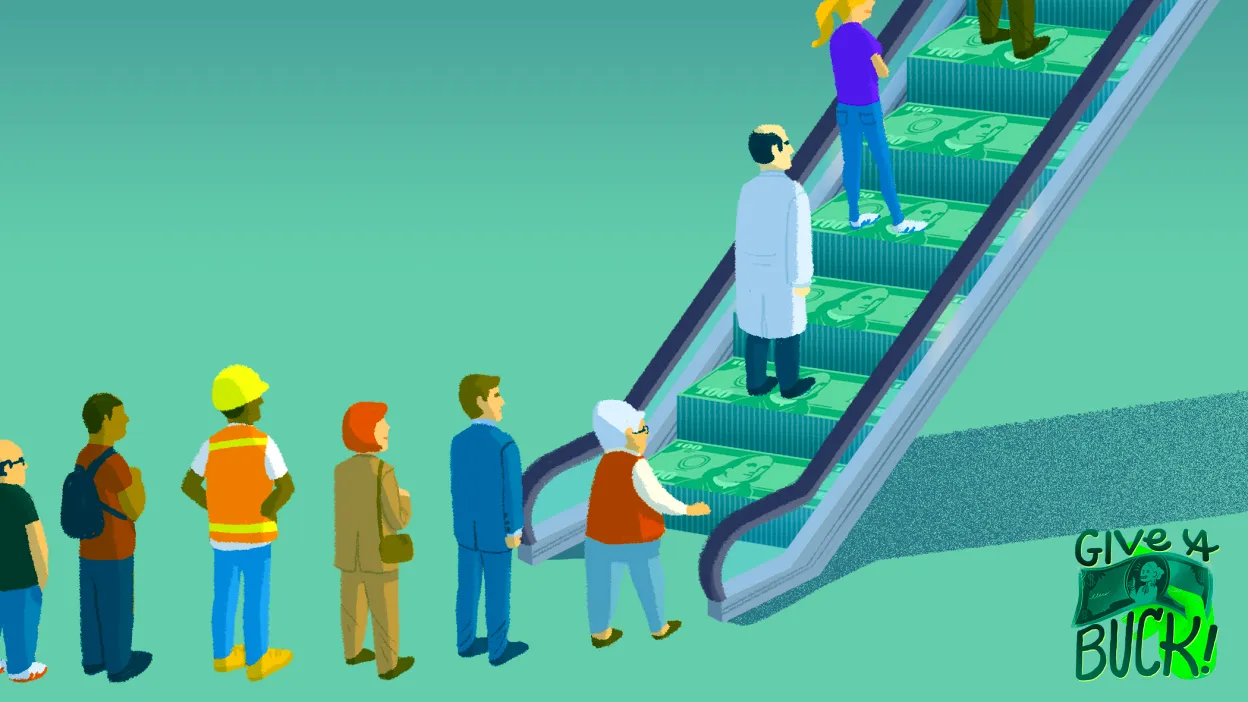Response to Dr. Steve Trost's Case for a Universal Basic Dividend
Introduction and Background:
Dr. Trost presents an interesting and thought-provoking idea that could potentially solve some of our nation’s issues. That being said, I struggled to understand some of the stipulations that he proposes within this concept. Additionally, I think it is rather unrealistic that this plan be implemented in the United States, however, that does not affect the merit of the idea. All in all, universal basic income has many pros and cons, and I would be interested to hear more potential plans that utilize this concept.
Aside from my opinions about universal basic income, the mention of the Alaska Permanent Fund reminded me of a previously discussed misconception. Dr. Ben Powell has pointed out that people often associate certain moral principles with socialism rather than the economic principles related to the system. We see this ring true again as Dr. Trost mentions that some people think that the Alaska Permanent Fund is a socialist concept being implemented in America; however, at its core the Alaska Permanent Fund operates in a capitalist manner by utilizing private donors, unlike Venezuela. This is a small-scale example of the principle of universal basic income and shows that it is not a socialist idea. Universal basic income, like the Alaska Permanent Fund, only functions optimally in a capitalist system. Additionally, the parties involved have considerably more freedom with their money than those within a socialist system. Understanding this is fundamental to even considering implementing this in the United States.
Pros and Cons of UBI:
Universal basic income presents some great potential benefits to citizens. *The argument is made that if we had universal basic income people may be able to leave high crime areas, poor housing, or struggling school districts. That is certainly great and something I want for people, but this point did cause me to wonder if this could just cause an inflation in the housing market as more people would be able to afford the nicer homes/ better areas. *Similarly, a spectator at Dr. Trost’s speech brough up that if this plan was implemented people may move to states with lower costs of living. To my understanding, this could again cause an inflation in certain areas for housing. We cannot be certain how people would spend the money, so this is not guaranteed to be an issue, but it is reasonably a potential issue that universal basic income could be counterproductive. Another example I saw of this was with Dr. Trost’s proposition to eliminate a minimum wage requirement. To my understanding, the very people who would heavily benefit from universal basic dividend could be working low-income jobs and it could be assumed that with the elimination of minimum wage requirements employers may decrease wages. Therefore, how beneficial is the stipend truly if for some it comes with a wage decrease. Additionally, making this true at the federal, state, and local levels seems opposite of the push for state’s rights and healthy state competition as mentioned in this talk. I will admit my education in economics is certainly lacking, but I am struggling to understand the necessity of eliminating the minimum wage requirement within this plan. *This point, along with the stipulation of a flat tax rate, make me wonder how beneficial this plan would truly be for low-income individuals. *
My oppositions previously stated to this plan may be plentiful, but I certainly see the benefits of this idea as well and found myself agreeing with many of Dr. Trost’s defenses. Dr. Trost notes that some people take opposition to this idea simply because they do not believe the government should have a “nanny” or caretaker role in society. Although I see the point in this argument, I feel that that perspective likely comes from a place of privilege. It is likely pretty easy to say that the government should not be responsible for your wellbeing if you had/have other people being your caretaker, but this is not the case for everyone. I particularly am thinking of foster care children and those with disabilities that rely on the systems in place by the government. I would like to hear more from those who are extremely against government assistance in these cases where the only caretaker available to those people is the government. Another argument against this concept is that universal basic income could cause a lack of motivation in the work force; however, I agree with Dr. Trost that those who are unmotivated after receiving the stipend are likely already the workers that are not very motivated and do not strive for more. Instead, this could create opportunities for motivated workers to leave their jobs in pursuit of better careers. This feeds into the point made by Dr. Trost that within this plan the government would no longer be protective of companies that are “too big to fail”, which I see as a positive.
Conclusion:
Regardless of my conflicting opinions about this idea, I think it is extremely unrealistic that we see it implemented in the United States. It would just be such a radical change, especially given the argument that this should be implemented as a constitutional amendment. That being said, Dr. Trost does acknowledge towards the end of the speech that he believes in the plausibility of this idea and not necessarily the probability that it is implemented, and I have to agree. I believe there is some plausible merit to this concept; however, overall, I felt unsure about the net positives of this specific proposal. That being said, I would be interested to hear more plans that utilize universal basic income and could see myself fully supporting it in the future.
